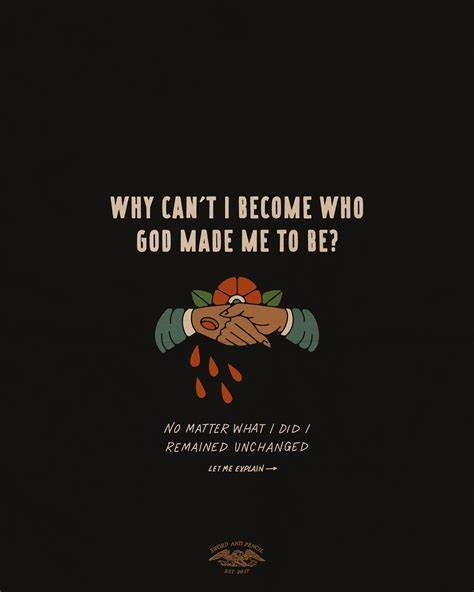Liturgy of the Broken Beloved
A Bonus Book Review of Josh Nadeau’s “Room for Good Things to Run Wild”
Every so often a book moves me to not just read it, but study it. I reflect on and share my favorite reads with you here on a Thursday, every once and a while. Here is my every-so-often book review because I can’t not. This book is that good.
Along with chronicling his journey towards bourbon-drinking and cigar-smoking holiness (my favorite variety of sainthood), in Room for Good Things to Run Wild,
weaves poignant reflections on culture, faith, and what it means to be a pilgrim in a world that makes it sickeningly simple to be plastic.Hollow.
Whitewashed.
His story portrays a spirituality with skin and bones, a “spirituality of the flesh,” as he shares. (135).
Spiritual formation is more than healing or even holiness; he outlines a movement from the intellect and even the heart, into the body.
Faith embodied.
Discipleship with legs.
For all of my recovery friends, his story is not your typical addiction recovery memoir, though he does share about his struggles with alcohol:
“Who knows when drink became my crutch for limping on, but it did.” (22)
For my Christian friends, his story is not your typical faith-forward memoir. His prose is like water in what feels like a desert most days. Not even a whiff of the pseudo-psychology that so many writers are leaning towards these days (even if for good reason in some cases).
He shares about his problematic substance use in a way that reminds me of Jack Kerouac in On the Road if he met Thomas Merton at a coffee shop—or more likely, a bar.
White t-shirts, leather shoes, contemplation, English pubs, cigar smoke, eyes looking towards the night sky: a sort of living poetry.
And his desire to live another way that is reminiscent of many of our stories.
Josh is a west-coast Canadian and artist who reads the mystics like (I would assume) Ryan Holiday reads the stoics. He is the creator of Sword and Pencil, creating art that captures the imagination of a modern faith journey. His writing can be found on Substack with Everyday Saints (a couple of his latest essays with a piercing the heart kind of conviction).
In the book, Nadeau also reveals how it is not just us, but our time that is aching:
“Our time suffers from the Main Character Syndrome: that the world is all ours and everyone else is just spinning in it. The notion of success, whether as a climber, or as an artist, or a ministry leader—or anything else—has boiled down to celebrity.”
He goes on to share that “everyone else is “the help” –a like, a follow, or a supporting role in the production Me.”
Yet, the paradox is in this overemphasis or celebrity-fication of the self, there is also the yearning for more understanding of what it means to rise above this and enter real selfhood.
Everyday sainthood.
A losing of one’s life to find it—not in the clouds, but in the body.
In the everyday rhythms of spirit-led life, and through the guidance of mentors and other everyday saints.
“We need help with mastery.”
Part of what I love about the book is that it is an experience of the senses. Not just the reading of words on a page, but the experiencing through art, imagination, poetry, and illusions from past authors, mystics, and Everyday Saints that portray what he calls throughout the book, a Hidden Music.
Yet this music isn’t just heard, it’s felt.
It is embodied.
It is a fullness that brings the body, the every day, the ordinary, and the beautiful, with it.
Perhaps it is my English literature background or perhaps my affinity for smoking cigs (back in the day). Regardless, his story is one that I hope you pick up. It reveals how good things can run wild. Like the Spirit, going where it pleases. And sometimes shaking us awake.
Josh’s story isn’t unique.
We hear them all the time.
Finding our way home.
Or returning to where we have not yet been.
Prodigal sons (and daughters) and what not.
shares that it is the call of writers today to disrupt “…spiritual narcolepsy. We’re not inventing something new, but rather helping people see old things with new eyes. Our words are smelling salts to slumbering souls (including our own).”Josh Nadeau brings something new—a disruption—and much needed:
It is a song that is inside all of us, a liturgy of the broken-beloved.
Caroline Beidler, MSW, is an author, speaker, and Managing Editor of Recovery.com, where she combines expert guidance with research to help people find the best path to healing and treatment. Her next book, When You Love Someone in Recovery: A Hopeful Guide for Understanding Addiction, is coming Spring 2026 with Nelson Books. Drawing from her own recovery journey through addiction, mental health challenges, and trauma, along with training as a mental health provider and addiction recovery expert, Caroline inspires others to believe that healing is possible. Learn more about her books here.








There’s something deeply incarnational about Josh’s work… this willingness to name the ache without dressing it in therapeutic cliches or varnished doctrine. He writes as one who has felt the desert, not merely theorized about it. And that makes all the difference. The prose carries a weight not of answers, but of presence. A kind of embodied honesty that reminds me less of a Christian memoir and more of the Psalms murmured under a streetlight.
The “Hidden Music” he speaks of. Yes, that’s it. That hum beneath the noise of self-invention. That quiet chord in the marrow reminding us we are not our metrics. His critique of “Main Character Syndrome” isn’t just cultural commentary, it’s spiritual diagnosis. And it invites the reader not to shame, but to sobriety. A return to the liturgy of the small. The overlooked. The sacramental ordinary.
Everyday sainthood… it’s the scandal of grace showing up in places we don’t expect - leather shoes and smoke rings and the quiet discipline of staying. What I find most moving, perhaps, is how his story doesn’t try to soar. It settles, instead, into the body. Into friendship. Into work. Into the slow conversion of an unhurried soul. This isn’t just a memoir. It’s a confession lit by the lamp of mystery. And like all true confessions, it leaves a trace of resurrection.
Thank you, Caroline, for sharing his voice. It feels like rain.
Caroline.
Thank you for the kind words — Kerouac and Merton in a bar is about as good as it gets — so it’s a compliment I’m taking to my grave.
You caught the heart of it too : not telling, but showing. Embodied living.